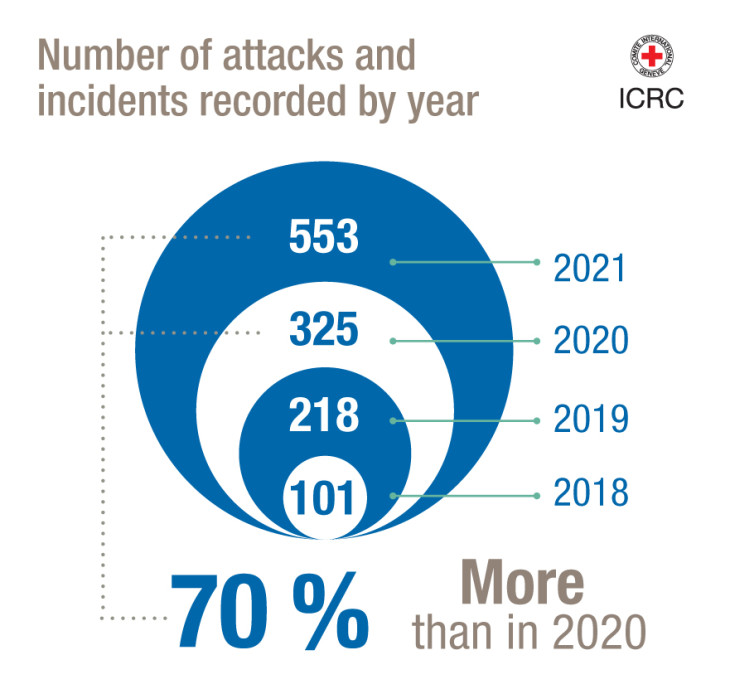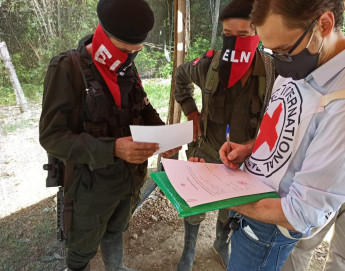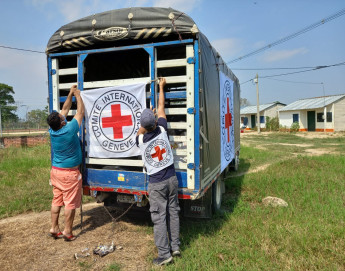
Colombia: health care in danger

Health workers have been attacked by civilians and weapon bearers alike. The accumulation of fear and fatigue is starting to impact on these workers' mental health, which in turn is making it more difficult for people to access health care.
The most serious incidents include homicides, arbitrary deprivation of liberty, assaults and threats. There have also been reports of stigmatization, violations of patient confidentiality and professional secrecy, material damage to health-care facilities, and being forced to treat a patient regardless of priority, among others.

It is worrying that 66% of these attacks were perpetrated by patients, family members or community members.
Also highlighted this year, due to social mobilizations, is the obstruction of ambulances, health personnel and medical supplies, which represents 56% of all attacks.
The majority of attacks and incidents (66 per cent) were at the hands of civilians, including members of the community, patients and their relatives – a number elevated by the protests that took place over the course of the year.
Formal reports of attacks perpetrated by weapon bearers have also risen, representing 20 % of all cases. However, ICRC is certain that many incidents go unreported for fear of repercussions.
Such underreporting in the midst of armed conflicts not only makes it difficult to establish the true scale of the problem, but also means that the most serious incidents go unnoticed and the impact unaddressed. Some health workers carry out their duties in a fearful silence, not only to save their own lives and their family's, but also to be able to keep treating those most in need. Some quit their jobs, out of fear or exhaustion.

2021 was the year with the highest number of attacks against health care workers in Colombia.
According to information we gathered in areas worst affected by armed conflicts, there were, for example, cases of arbitrary deprivation of liberty, of people bringing weapons into hospitals and demanding priority treatment, and of people entering emergency rooms to kill suspected enemies.
In addition, we found that increasing numbers of health workers in these areas are reporting being subjected to threats and extortion.
These incidents, as well as damage inflicted on healthcare infrastructure during armed clashes, suggest that weapon bearers are failing to comply with the principle of precaution set out in international humanitarian law.
This has serious consequences for the sick and wounded. Health-care workers often quit their jobs and leave badly affected areas as soon as they can, leaving the most vulnerable without medical attention in the midst of a crisis and making it difficult for them to exercise their fundamental right to health care.
Delivering health care should not be a dangerous or courageous activity. We urge all weapon bearers and civilians to respect health workers under all circumstances. We also urge state institutions to redouble their efforts to protect and support health-care professionals, especially in those areas most affected by armed conflict and violence.
About 'Humanitarian Challenges 2022'
- War should not remain the status quo in Colombia.
- Head of Delegation Editorial: listening to the voices of victims.
- Explosive hazards in Colombia: a latent threat.
- Missing persons: a humanitarian tragedy that must not be forgotten.
- Prisons, migration and use of force.
- Confidential dialogue with weapon bearers.
- Calls to action from the ICRC.



